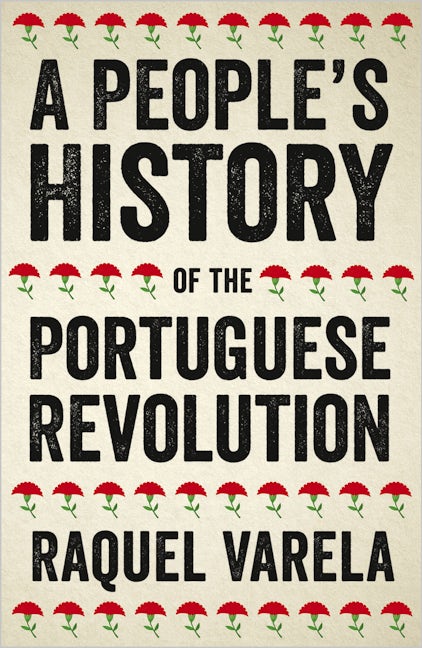
A People's History of the Portuguese Revolution
Series: People's History
This became the Carnation Revolution - an international coalition of working class and social movements, which also incited struggles for independence in Portugal’s African colonies, the rebellion of the young military captains in the national armed forces and the uprising of Portugal’s long-oppressed working classes. It was through the organising power of these diverse movements that a popular-front government was instituted and Portugal withdrew from its overseas colonies.
Cutting against the grain of mainstream accounts, Raquel Cardeira Varela explores the role of trade unions, artists and women in the revolution, providing a rich account of the challenges faced and the victories gained through revolutionary means.
Raquel Varela is a labour historian, researcher and Professor at New University of Lisbon, and Honorary Fellow at the International Institute for Social History. She is also president of the International Association of Strikes and Social Conflicts and co-editor of its journal. She is the author of A People's History of the Portuguese Revolution (Pluto, 2018).
Photographs, Figures and Tables
Acknowledgements
Editor’s note on the English edition
Abbreviations
1. Introduction
2. The Seeds of Change
3. 25 April 1974: ‘The People are No Longer Afraid’
4. Who Governs?
5. The Anti-Colonial Movements and the Myth of a ‘Bloodless Revolution’
6. Strikes and their Reverberations
7. Self-Management and the Struggle Against Redundancies
8. Women in a Democracy are Not Mere Decoration: Social Reproduction and Private Life in the Revolution
9. Artists and the Revolution
10. Workers’ Commissions and Unions
11. ‘Here is the Nursery’ – Urban Struggles and Residents’ Commissions
12. Workers’ Control, 11 March and Nationalisations
13. The Birth of the Welfare State
14. Scheming for Power
15. The Land for its Workers: Agrarian Reform
16. The ‘Hot Summer’ of 1975 and the Fifth Government’s Frail Governance
17. Spain and other ‘Links in the Chain’
18. The Crisis
19. Democracy and Revolution: The Meaning of the Carnation Revolution
20. In Celebration
Chronology
Notes
Bibliography
Index
About the author
eBook ISBN: 9781786803580
150mm x 230mm

